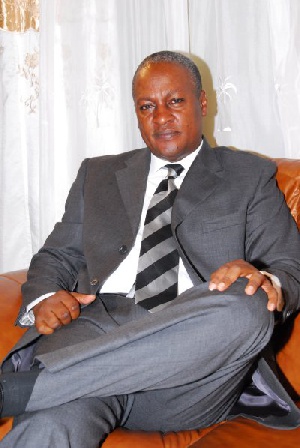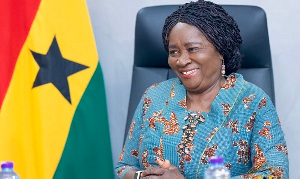The government we elect next November should adopt an economic policy based on our circumstances and the needs and aspirations. The path to follow is determined by the situation in the country and the world at large.
At Independence, Ghana was torn between two major development paths for rapid economic development: the capitalist or free market way and the communist road. Kwame Nkrumah chose the socialist path which was along the communist road. It was a philosophy or ideology of development and he tried to explain it and to obtain the support of the people for the chosen path.
The Kwame Nkrumah Ideological Institute was established at Winneba for the purpose. Many educated Ghanaians derided the idea while some party enthusiasts came out of the institute with catechisms and slogans they little understood. Kwame Nkrumah encouraged African intellectuals to lecture at the Institute, which he believed would help entrants to the public service.
The President wanted a most capable person as an ambassador to Ethiopia when the Organisation of African Unity was about to be established in 1963. I suggested Kodjo Debrah, a bright and hard-working officer. Nkrumah wanted to know whether he was familiar with the ideology. I said yes, but he insisted that Debrah must pass through the ideology school. Debrah accordingly had a spell at the school.
But Kodwo Addison, the Director of the Ideological Institute, found that the student knew much about the aims and objectives of the state and its ideology. Debrah therefore spent most of his time at the Institute lecturing to explain the fundamentals of state policy. The institute was therefore not a propaganda establishment for churning out slogan-fuming party functionaries. It was a genuine attempt to make officials and the public understand the aims and objectives of government policy.
I believe that such an effort to promote understanding of economic and social policies is as important today as it was years ago. There is a tendency to believe that there is only one policy for economic progress. The chief apostles of this creed are cloistered at the World Bank and the I.M.F. The creed is a belief in a state with limited functions which allows the local and foreign rich to get richer. It also renounces the sin of nationalisation, budget deficits and debts.
Capitalism was given a new lease of life in neo liberalism. It must be admitted that the new policies reduced poverty in some countries largely because of the resultant expansion of world trade. The selling of badly run state enterprises also improved some services and this aided economic growth.
Free movement of capital assisted development in some countries but this led to booms and busts when the flow could not be sustained. As often happens in beliefs without basis in facts, the busts did not lead to questioning of policies. The unwelcome consequences were ascribed to inadequate reforms in the economic and social systems. Ghana should learn from her experiences in this area.
Meaningless austerity and welfare cuts as is happening in the National Health Insurance Scheme are not the answer to the present economic problems. What is needed is appropriate budget deficits and judicious borrowing to implement thoughtful plans accompanied by ruthless war against corruption at all levels. This can help produce the necessary economic growth which will satisfy the legitimate aspirations of the Ghanaian.
For this to happen, those fortunate to have the benefits of the appropriate education should study the issues, think and speak out for the policies our government should follow if life is to be more pleasant than it is today.
Ghana is a rich country. It is, however, impoverished by history and the myopia of some of her key leaders past and present. Our intellectuals, especially those with expertise in the economic and political fields have a duty to educate the public and ensure that our democracy produces the leaders the times demand.
Opinions of Monday, 13 June 2016
Columnist: K. B. Asante















